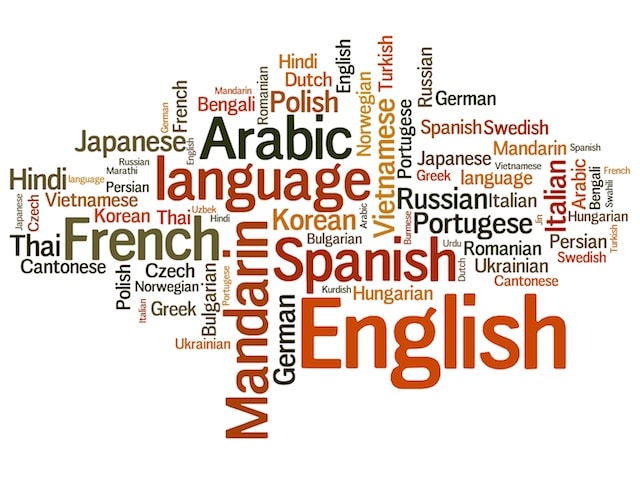GREEK LANGUAGE
Understanding The Greek Language & Providing Professional Greek Interpreters, Translators and Transcriptionists
American Language Services? (AML-Global) understands the importance of working in the Greek language. For over a Quarter of a Century, American Language Services has worked with the Greek language as well as hundreds of others from around the world. We offer comprehensive language services 24 hours, 7 days a week worldwide by providing Greek interpreting, translation and transcriptions services along with hundreds of other languages and dialects. Our linguists are native speakers and writers who are screened, credentialed, certified, field tested and experienced in a number of specific industry settings. The Greek language is unique and has very specific origins and characteristics.
The Greek Language in Greece and around the World
Greek is spoken in Greece, Cyprus, the United States, Australia, the United Kingdom, Russia, Romania, and other regions around the world. The culture of Greece has evolved over thousands of years, with its beginnings in the Mycenaean and Minoan Civilizations, continuing most notably into Classical Greece, the Hellenistic Period, through the influence of the Roman Empire and its Greek Eastern successor the Byzantine Empire. The Ottoman Empire too had a significant influence on Greek culture, but the Greek war of independence is credited with revitalizing Greece and giving birth to a single entity of its multi-faceted culture throughout the ages. The constitution of Greece recognizes the Greek Orthodox faith as the “prevailing” religion of the country, while guaranteeing freedom of religious belief for all. Due to the complexity of Greek immigration policy, practices and data collection, truly reliable data on immigrant populations in Greece is difficult to gather and therefore subject to much speculation. The greatest cluster of non-EU immigrant population is in the Municipality of Athens some 132,000 immigrants, at 17% of local population. An important percentage of Greece’s income comes from tourism. In 2004 Greece welcomed 16.5 million tourists. According to a survey conducted in China in 2005, Greece was voted as the Chinese people’s number one choice as a tourist destination, and 6,088,287 tourists visited only the city of Athens, the capital city. In November 2006, Austria, like China, announced that Greece was the favorite destination. In 2007, Greece welcomed more than 19 million tourists, and climbed to the top ten tourist destinations worldwide. The island of Rhodes was announced the best European tourist destination. Other famous tourist hotspots include the capital Athens, the northern Chalkidiki peninsula, the Ionian island of Corfu and the island resorts of Myconos, Santorini, Paros and Crete.
Origin of Greek
Greek is an Indo-European language native to the southern Balkan peninsula, the language of the Greeks. It forms an independent branch within Indo-European. It has the longest documented history of any Indo-European language, spanning 34 centuries of written records. In its ancient form, it is the language of classical Ancient Greek literature and the New Testament of the Christian Bible. In its modern form, it is the official language of Greece and Cyprus, and spoken by a total of approximately 20 million people including minority and emigrant communities in numerous parts of the world. Greek has been spoken in the Balkan Peninsula around the late 3rd millennium BC. The earliest written evidence is found in the Linear B clay tablets in the “Room of the Chariot Tablets” making Greek one of the world’s oldest recorded living languages. Among the Indo-European languages, its date of earliest attestation is matched only by Vedic Sanskrit and the extinct Anatolian languages. The later Greek alphabet is derived from the Phoenician alphabet; with minor modifications, it is still used today.
The Development of Greek
Like most Indo-European languages, Greek is highly inflected. Greek language morphology has come down through the ages fairly intact, though with some simplifications. For example, Modern Greek features two numbers: singular and plural. The dual number of Ancient times was abandoned at a very early stage. The instrumental case of Mycenaean Greek disappeared in the Archaic period, and the dative-locative of Ancient Greek disappeared in the late Hellenistic. Four cases, nominative, genitive, accusative and vocative, remain in Modern Greek. The three ancient gender noun categories (masculine, feminine and neuter) never fell out of use, while adjectives agree in gender, number, and case with their respective nouns, as do their articles. Greek is a language distinguished by an extraordinarily rich vocabulary. In respect to the roots of words, ancient Greek vocabulary was essentially of Indo-European origin, but with a significant number of borrowings from the idioms of the populations that inhabited Greece before the arrival of Proto-Greeks.
Who are You Going to Trust with Your Vital Greek Language Needs?
The Greek language is an important language worldwide. It is vital to understand the general nature and specific idiosyncrasies of Greek. Since 1985, AML-Global has provided outstanding Greek interpreters, translators and transcriptionsts worldwide.
























